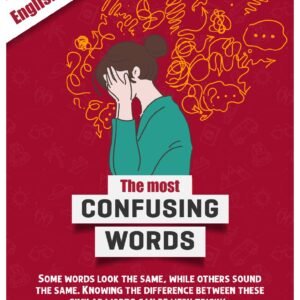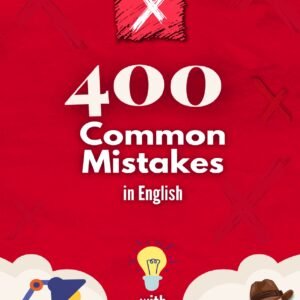Words, phrases, and expressions can have different meanings in different contexts. The study of these different meanings is known as semantics. This branch of study examines four qualities of word meaning – denotative, figurative, metaphorical, and connotative – which will be described below.
Denotation – The definition of a word that we find in the dictionary, its literal or direct meaning, is known as its denotative meaning. Have a look at the following words, listed with their denotative meanings:
- bat : (noun) a small mammal with wings that sleeps during the day
- snake : (noun) a long, scaly reptile without legs that sometimes carries venom
- slim : (adj) slender or thin
Figurative meaning – When words are used metaphorically as “figures of speech,” they have figurative meaning. Figures of speech are widely used in English. Take a look at the following examples of figurative meaning:
- I told you a million times to stop doing that! (to tell many times)
- I’m so hungry I could eat a cow. (to be very hungry)
- That cost me an arm and a leg! (to be very expensive)
- He was as brave as a lion. (to be very brave)
- Sitting through that class was like watching paint dry. (class was very boring and slow)
Words with Multiple Meanings
How many times have you opened a dictionary to look up a word, and discovered that the word has only one meaning listed beside it? Essentially never, right? Almost every word in the English language has multiple meanings and may function as multiple parts of speech.
For example:
rose
- It’s time to prune the rose bush. (adjective)
- I gave the dancer a rose. (noun)
- I rose from the bench and walked home. (verb)
part
- I like to part my hair neatly. (verb)
- She only read one part of the book. (noun)
- My mom is Kenyan, so I am part Kenyan. (adjective)
Words with multiple meanings often fall into one of the two categories:
- Homonyms – Words with the same spelling and pronunciation but different meanings.
- Homographs – Words with the same spelling, but different pronunciation and different meanings.
Take a look at the lists of homonyms and homographs below.
Homonyms
crane:
- Cranes are beautiful birds. (noun – bird)
- The crane was used to lift the steel bars to the top of the building. (noun – machine)
- She had to crane her neck to see the movie. (verb – stretch out)
date:
- Dried dates are one of the most delicious snacks. (noun – fruit)
- Diego went out on a date last Saturday. (noun – social appointment)
- What date is Thanksgiving this year? (noun – day of the month)
engaged:
- My brother got engaged to his girlfriend this weekend. (adjective – agree to marry)
- The teacher chose very engaging topics to keep the students interested. (adjective – appealing)
leaves:
- The leaves change colors in autumn. (noun – from trees)
- My dad eats cereal every day before he leaves for work. (verb – present)
point:
- The knife has a sharp point. (noun – tip of an object)
- Can you point to the person you saw stealing? (verb – hand gesture)
right:
- You were right about the weather; it’s been pouring rain all day. (adjective – correct)
- Take a right at the next traffic light. (adjective – direction)
Homographs
read:
- I read books before I go to sleep. (present tense)
- He read a book last night before he went to sleep. (past tense)
minute:
- Our problems seem minute compared to those who face war and uncertainty on a daily basis. (adjective – small)
- Stir for a minute and then turn the heat down on the stove. (noun – 60 seconds)
learned:
- We learned how to use the present perfect continuous in class last week. (verb – past)
- My teacher is a very learned individual who went to Oxford. (adjective – educated)
does:
- He does his homework in the morning before school starts. (verb – present)
- The hunters were chasing does in the forest. (noun – female deer)
wind:
- The wind blew all the chairs over in the backyard. (noun – moving air)
- Make sure you wind up the clock after you put the turkey in the oven. (verb – present)
Connotations
Connotations are the feelings, associations, and ideas that certain words invoke beyond their literal or primary definition. These are often culturally based.
Connotations can be negative, positive, or neutral. For example:
- childish: The way he acted at dinner was childish and silly.
- woman: I know that woman over by the bar.
- stunning: The dress that she wore to the dinner party was stunning.
The first example, “childish,” has a negative connotation which implies that the person in question acted immaturely. Saying that an adult is acting “childishly” is not a compliment, but is rather insulting, connoting a lack of maturity, responsibility, and wisdom. If an adult is described as “childlike,” however, the connotation is positive.
The second example, “woman,” has a neutral connotation, implying nothing more than the fact that the person in question is female. The word does not imply that she is intelligent, unintelligent, good-hearted, mean-spirited, or anything else. In effect, neutral connotations are better thought of as not having connotation so much as simple, literal meaning.
The last example, “stunning,” has a positive connotation, implying that the dress is beautiful or gorgeous, which can only be interpreted as complimentary.
Here are some more examples of negative, positive, and neutral connotations:
- cheap – (negative) a person who does not like to spend money.
- thrifty – (positive) a person who is careful with money.
- young – (neutral) a person who is of a young age.
- youthful – (positive) a person who may not be young, but has all the good qualities of youth.
- childish – (negative) a person who behaves like a child in a negative way.
- thin – (neutral) a body size that is the opposite of fat.
- slim – (positive) a body size which is thin and also healthy and elegant.
- skinny – (negative) a body size which is so thin as to appear unhealthy.
- inactive – (neutral) doing nothing.
- laid-back – (positive) to have a relaxed attitude.
- lazy – (negative) avoiding work and effort
False Friends
False friends are pairs of words or phrases in two languages that look or sound alike but have significantly different meanings. These types of words present a problem for native speakers of Romance (Latin-based) languages such as French, Spanish, Italian, Romanian, and Portuguese.
There are numerous false friends which are broken into three wide-ranging categories:
- Words with a common root but which have evolved different meanings over time:
actuel (French for “current“) – actual (English for “true“)
- Words that appear similar but are entirely unrelated to each other:
pain (French for “bread“) – pain (English for “physical suffering“)
- Words with a common root, but alternate meanings :
porc (French for “pig” and “pig meat”) – pork (English for only “pig meat”)
These similarities result in students using words they assume to be the similar to words in their native language, but which might be quite different. This leads to errors in speaking and writing, and confusion in listening and reading.
Take a look at some common “false friend” confusions by Spanish, French, and Finnish EFL students:
- asistir (Spanish for “to attend/be present“) – assist (English for “to help“)
- avertissement (French for “warning/caution“) – advertisement (English for “public announcement“)
- harmonikka (Finnish for “accordion“) – harmonica (English for “harmonica“)










Pingback: Por que o Atari foi chamado de Atari? – Como fazer Geek – Tarine Technology